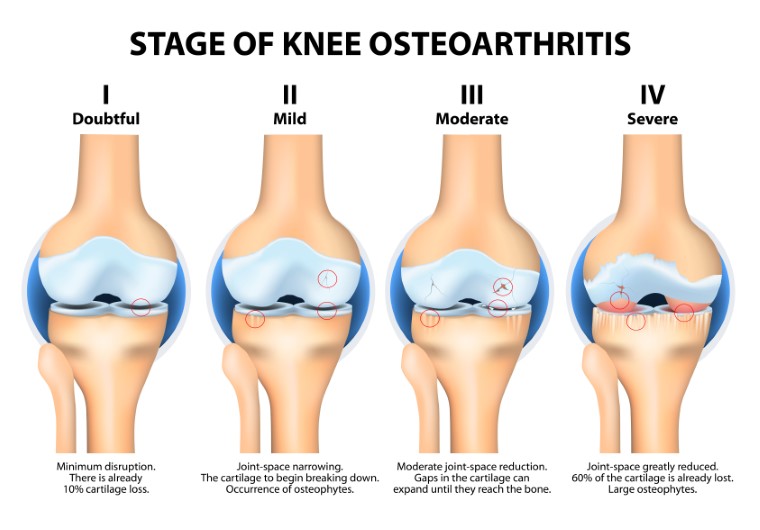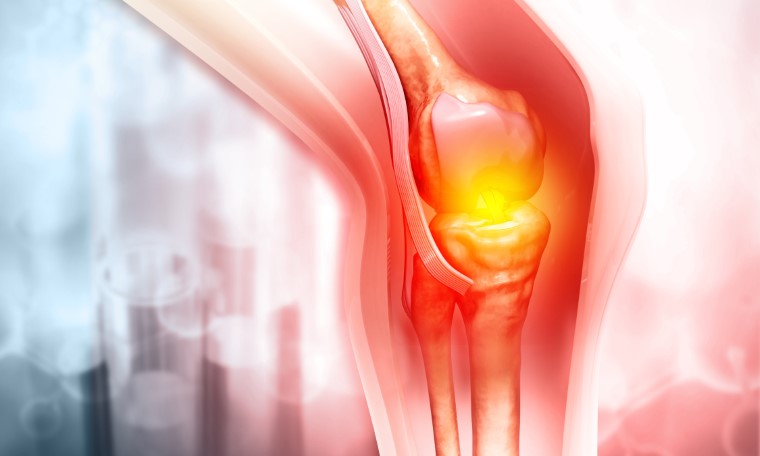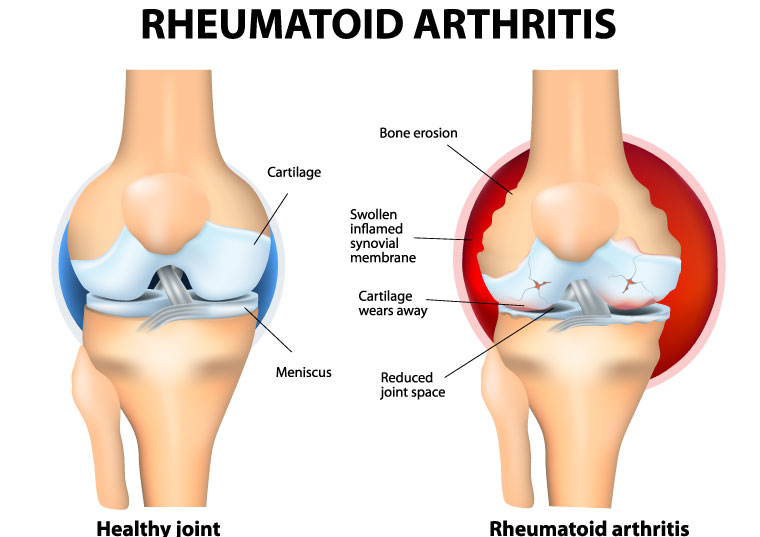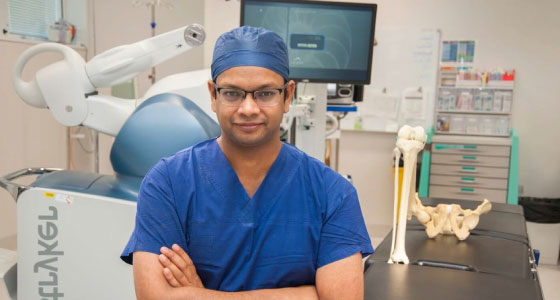If you’ve been suffering from pain and discomfort in either one or both of your knees for an extended period of time, you may be suffering from knee arthritis. While osteoarthritis of the knee is most common in older patients, it’s possible for people of a younger age to be affected too.
So If you’re suffering from pain and discomfort, it’s best to seek the advice of a specialist, and Dr. Chandrasekaran is an expert when it comes to knee arthritis treatment. Melbourne residents can contact the team at MOATI today to book a consultation with Dr. Chandrasekaran, who can provide you with all the different treatment options available, to help relieve knee joint pain.
What is knee arthritis?
Arthritis of the knee is an inflammatory and degenerative joint disease, which affects the articular cartilage covering the knee joint. The cartilage covering the bone in a normal joint, acts a cushion, allowing the knee to smoothly bend and straighten. Knee arthritis causes cartilage damage, which leads to severe pain and discomfort in the affected joint and can have a significant impact on movement.

If you have severe, advanced arthritis of the knee you may require surgery.
Causes of knee arthritis
Knee arthritis is caused by 3 different types of joint diseases:
Post-Traumatic Knee Arthritis
Post-traumatic arthritis is a less common form of knee arthritis. It occurs when a broken or fractured bone extends into the joint space, causing the surface to become uneven. Over time, friction causes the joint to break down and become arthritic.
Knee Osteoarthritis
Osteoarthritis is the most common type of knee arthritis. The cushioning cartilage at the end of the femur may have worn down, making walking painful as bone rubs against bone.
Rheumatoid Arthritis
Rheumatoid arthritis, sometimes called inflammatory arthritis, causes a person’s immune system to attack the joints with uncontrolled inflammation, potentially causing joint erosion.
What are the symptoms of knee arthritis?
Pain and inflammation are the most common symptoms of knee arthritis but you may also experience a number of others:
- Creaking or clicking noises (crepitus)
- Joint stiffness
- Joint swelling
- Difficulty walking
- Increased joint pain with changes in the weather
- Knee buckling
- Increased pain after vigorous activity
- Reddening of the skin
- Warm skin around the joint

Post-traumatic arthritis is a rare type of arthritis, that is caused by friction slowly breaking down the knee joint over time.
How is knee arthritis diagnosed?
There is no single test that can definitively diagnose knee arthritis. To accurately diagnose the disease takes a combination of x-rays, a study of your medical history, a physical examination and blood tests. These tests will be able to determine which type of arthritis you’re suffering from.
What is the best treatment for knee arthritis?
Unfortunately, there is currently no cure for knee arthritis but there are a number of treatments (both surgical and non-surgical), that can help alleviate pain and improve your quality of life.
Non-Surgical
There are a number of non-surgical treatment options for knee arthritis. Most patients try the non-surgical treatments before opting for invasive surgery:
- Excercise program and lifestyle changes - bespoke exercises, weight loss and physiotherapy can help reduce pain, improve movement and help postpone surgery.
- Injections - Anti-inflammatory injections are designed to relieve pain, reduce swelling and improve function in patients suffering from knee arthritis.
- RF Ablation - a pain management system that uses water-cooled technology, to safely deactivate pain-transmitting sensory nerves around the knee.
Surgical
There are two knee arthritis surgery options. The severity of your condition will determine which one is most suitable for you:
- Arthroscopic knee surgery - key-hole knee surgery used to place a small camera and instruments inside the joint space, to perform corrective treatments.
- Replacement knee - Either a partial or total replacement of the knee may be required, depending on the severity of your knee arthritis.

Rheumatoid arthritis, also known as inflammatory arthritis, causes a person’s immune system to attack the joints with uncontrolled inflammation.
How is knee arthritis surgery performed?
Each knee arthritis surgery is performed differently, depending on the particular procedure you’re having. The full details of your surgery will be discussed with you at your consultation. During this time you can ask any questions and address any concerns you may have.
How much does knee arthritis surgery cost in Melbourne?
The cost for knee arthritis surgery also depends on the particular procedure you’re having. In order to get an accurate cost for your surgery, we recommend booking a consultation with us. During your consultation, Dr Chandrasekaran will be able to provide you with full details of the surgery and a breakdown of costs.

Inflammation, swelling and stiffness are the most common symptoms of knee arthritis and without treatment, can significantly impact your everyday life.
Why choose MOATI for arthritis knee treatments
Knee arthritis can be debilitating and we understand how much the disease affects your everyday life, so we strive to do everything in our power to ensure we can help you alleviate it. We pride ourselves on devising the best treatment plans suited to your individual needs and ensure we’re with you every step of the way, from your initial consultation to post-operative care.

Dr Siva Chandrasekaran
Dr Siva Chandrasekaran is a highly experienced Orthopaedic Surgeon and a knee arthritis treatment specialist. He has completed a number of prestigious fellowships and had over 50 articles on knee and hip treatments published.
FAQs
If you have any more questions regarding knee arthritis treatment, please contact us today. Below are our most frequently asked questions that may also provide you with the additional information you’re looking for.
There is currently no cure for arthritis of the knee but there are a number or ways to help alleviate pain, increase movement and improve your overall quality of life.
A knee brace can certainly offer some greater stability and sometimes even improve function in people who have knee osteoarthritis if worn consistently.
This depends on which form of knee arthritis you’re suffering from. Rheumatoid arthritis (inflammatory arthritis) often affects joints symmetrically, so if one knee is affected the other is also likely to be too.
Overdoing an activity, weight gain, trauma or excessive strain on the joint will often aggravate arthritis of the knee. Other factors can include bone spurs, repetitive motions, cold weather, stress or an infection.
Low impact exercises like walking, are a very good option for many patients with knee arthritis, as it doesn’t put any undue stress on the knee joints.
